
by admin | Sep 29, 2023 | General
Project management is in great demand by many businesses, as are the project managers. Project management is widely used in today’s economy, regardless of the business. Why?
Today’s organizations confront tremendous competition. They must address global issues and respond to internal/external concerns in parallel. In response to obstacles, businesses require a disciplined strategy for planning, organizing, controlling, and managing their resources (including internal skills) to deliver outcomes on time. And these outcomes should be in line with goals and demands. Project managers with strong project management abilities are well-equipped to take on these initiatives. These initiatives may have varying levels of complexity. Therefore, if you are a project manager or want to start a career as a project professional and be marketable amongst other professionals to survive in this competitive environment, this article will provide a good overview.
Transforming your project management career
A project management career might be an excellent choice if you want to increase your income and professional status. Project management roles are often active and interesting, with constant new challenges and possibilities. In contrast, talented project managers are in high demand throughout the corporate sector, as many qualified candidates are looking for these opportunities.
Understanding Project Management
One of the biggest misconceptions regarding the project management profession is that it is fundamentally the same as a more traditional management position. While project managers must be great leaders, their primary responsibility is to manage projects, not people.
Unlike departmental managers, project managers are not a part of the typical supervisory structure used by most businesses. Instead, they function as a type of free agent – a project management profession entails coordinating the work of many individuals and divisions to achieve a certain assignment. Throughout a project, the project manager will communicate with individual contributors at all levels of the organization in connection to various deliverables.

Duties of a Project Manager
Project Manager Duties/Tasks
- Determines relevant goods or services to define project scope, requirements, and deliverables with clients or customers
- Develops, adjusts, or contributes to project plans
- Implements project strategies to achieve goals
- Project activities are coordinated and integrated
- Manages, Directs, or Oversees project resources
- Monitors project activity and resources to reduce risk
- Quality assurance methods are implemented or maintained
- When issues arise, the project manager makes changes, fixes them, or takes remedial action
- Presents or briefs on all aspects of the project
- Participates in the project phase, milestone, and outcome reviews
- Determines the requirements or processes for project documentation
- Creates and implements a product release strategy

Qualities that make a Project Manager in High Demand
Qualities that make a Project Manager in high demand
Effective project management may require the following qualities to become an effective project manager:
- Effective communication skills
A good communicator is one of the qualities of a successful manager since it allows them to interact with people at all levels. The project manager must clearly describe the project goals, duties, responsibilities, expectations, and feedback for each team member to obtain the project goal.
- Strong leadership skills
Effective project management requires strong leadership abilities, such as encouraging and driving the team to maximum performance to achieve their objectives.
- Good decision-maker
An effective project manager must be able to make decisions since they will always be required.
- Technical expertise
Because project management software and other associated programs are vital in achieving project goals, a good project manager must have strong technical expertise to understand technological challenges. In addition, knowledge of theory and technology may substantially assist managers in adopting strategic moves when necessary.
- Inspires a shared vision
An effective project manager can communicate the vision to the team members. A visionary can guide employees in the proper direction while effectively adapting to changes. In addition, they excel in empowering people to experience their vision for themselves.
- Team-building skills
A team must work together, or the project will face numerous relational issues that might threaten its success. Project managers must understand how to offer each of them the attention they require by emphasizing their positive characteristics.
- Handles the pressure
As the project progresses, specific events could hinder its pace and put the project manager’s patience to the test. Therefore, project managers must always remain composed and grounded to avoid losing themselves and negatively affecting their connection with the team.
- Good negotiation skills
The capacity to negotiate is one of the abilities required for efficient project management. Project managers must have strong negotiation skills to resolve disputes resulting from differences of opinion and keep the team functioning together.
- Empathetic
An empathetic leader demonstrates to their followers’ things like compassion, empathy, and gratitude for others’ assistance. Understanding the project’s and its stakeholders’ demands is a necessary step.
- Competence
A good manager can start new initiatives, manage obstacles, and knows what he is doing.
An effective project manager must possess the majority of these qualities to manage the project successfully, along with a professional certification. Professional certificates can add value to their career and aid in success in a competitive environment.
Project Management Certification
A project management certification is a certification that verifies an individual’s project management knowledge, skills, and practical expertise. Certifications like PMP®, PgMP®, PfMP®, and other advanced certifications can aid the professional’s knowledge and adds value to their career.
According to the August 2023 PMI Fact File Stats, there are 1,465,873 PMP®, 4,847 PgMP®, and 1,538 PfMP® active certified professionals globally. Thus, completing those training programs and earning a project management certification from a globally recognized standard organization such as the PMI might improve the career, including staying current with a constantly evolving field, keeping up with the latest technology and practices, and earning a better project manager salary.
A career in project management: Facts and Figures
Project management has become a highly sought-after career path in today’s agile environment. According to the Project management – Job Growth and Talent gap, 2017 – 2027 report,

Project Management – Job Growth and Talent Gap | PMI
- A growing disparity exists between the demand for experienced PMPs and their suppliers worldwide. As a result, firms and organizations are searching for qualified project management professionals. Moreover, it allows one to tailor themselves to their needs.
- By 2027, there will be a demand for 87.7 million PMP positions. Because of increased demand and high attrition, there will be a huge job opportunity for a project management role in the coming future in various sectors, including manufacturing and construction, information services and publishing, finance and insurance, management and professional services, utilities, and others.
- Apart from the fact that there will be a lot of employment for PM positions in the future, it’s also encouraging to know that PM roles will be financially rewarding. According to the report, in the United States in 2017, earnings of project management-oriented professionals in projectized sectors were 82 percent more on average than the salaries of non-project-oriented professionals.
Challenges Faced by the Project Managers
A project manager must handle challenging projects smoothly and deliver positive outcomes. It may appear that being a project manager is a simple and well-paid profession. However, a project manager must work hard and face obstacles daily to balance all parts of a complicated project.

Challenges Faced by Project Managers
As a result, a project manager must be skilled in various areas, including communication, decision-making, delegating, and risk-taking, to mention a few. In addition, project managers are constantly required to manage tasks, resources, time, and money in addition to managing projects. Here are some of the challenges that today’s project manager’s face:
- Scope creep
Scope creep expands a project’s scope beyond its intended objective or aims. It usually occurs when project stakeholders request adjustments. Any change to a project’s strategy can cause confusion, raise the cost of resources, and make meeting deadlines difficult.
- Poor communication
Strong communication is one of the keys to effectively completing a project. A project manager can successfully provide orders, acquire information, and update stakeholders if they have strong written and verbal communication skills. Otherwise, their team might need to be more organized, causing delays.
- Unclear goals
Projects can only be effective if the team works toward well-defined and quantifiable goals. Ideally, every team member is aware of each project objective and the specific expectations of each stakeholder. Otherwise, they may spend time and resources attempting to do something that does not give the necessary benefit.
- Poor budgeting
Smart financial planning and cost management are required to ensure that funds are used wisely. Poor budgeting, on the other hand, may result in unfavorable effects. Without a solid understanding of financial concerns, the team may face cost overruns, aggravating stakeholders and preventing the project from being completed successfully.
- Insufficient risk analysis
Risk analysis is forecasting probable elements that might threaten a project’s success. Although it is an important aspect of the project life cycle, the process is vulnerable to specific hazards. For example, rushing the analysis might result in oversights that fail to anticipate important difficulties. As a result, flaws in the project design, budgetary concerns, or unexpected variables may arise.
- Lack of accountability
Accountability is accepting responsibility for one’s actions and the consequences of those acts, especially when mistakes are made. As a result, responsible people are willing to confront the consequences of their actions and attempt to overcome the resulting difficulties. However, when leaders and team members are not accountable, they can interfere with development in many ways. One way is to undermine team morale, which may withstand the repercussions of a single person’s errors. The other is by decreasing production when project resources are diverted to determine the root cause of a problem.
- Unrealistic deadlines
An unrealistic deadline is impossible or unreasonable to accomplish, given the specifications and needs of the project. When a team faces unreasonable deadlines, they are obliged to compress their operations so that the quality of their work decreases. As a result, the project’s final output will likely fall short of client expectations.
- Uncertainty
Uncertainty occurs when stakeholders, including team members, need clarification about any part of the project they are working on. For example, they may be concerned about the team’s ability to accomplish goals, the project’s possible impact when finished, or the usage of project resources. When uncertainty occurs, it may damage engaged people and lead to poor project outcomes.
Ways to make yourself more marketable as a Project Manager
Making oneself necessary to a current employer or alluring to a prospective one is the key to being (and remaining) marketable. Therefore, it is a commitment to constantly broaden the skills and knowledge to remain current, competitive, and well-positioned to compete for employment in various market scenarios.

Ways to make yourself more marketable as a Project Manager
Here are some suggestions to boost your job prospects at all phases of the economic cycle.
- Upgrade your skills
Keeping your skills fresh, current, and relevant is the best way to stay marketable. Align your skillset with your company’s plans and those of potential employers, and keep up-to-date by attending workshops and conferences to expand and improve your skillset.
Identify gaps that need addressing to position yourself as a highly valuable employee. Focusing on developing your transferable skills (in leadership, communication, or technology, for example) is a smart investment in diversifying and upgrading your career.
- Expand your learning
Continuous learning demonstrates your dedication to growth. Remember that you must stay current on the industry’s best practices and technologies, even if you are not using this information in your current role. Improving your knowledge and qualifications is a vital strategy to boost your worth to a current or future company.
In-house training, distance learning, and online courses may all help you develop new skills and information. Online seminars and professional journals are also excellent ways to stay current in your field, making it simpler to transition into a new job.
- Rework your CV
Refresh your CV with recent accomplishments and current skills so you can take advantage of opportunities as they emerge. Update your CV with concrete examples of your achievements, such as improving business procedures, contributing to the bottom line, or attending key conferences or seminars. Keeping a record of your accomplishments is an excellent reminder of the value you provide to your present position.
- Be flexible
In today’s constantly changing work market, having an open mind and staying flexible about your professional choices will offer a world of extra professional prospects. However, you may need to reassess your expectations regarding industry, compensation, and employment type (permanent, contract, or temporary) to keep your alternatives open and avoid restricting your employability.
- Expand your network
One of the essential job search and career development tools you have is your network of connections. Attend chapter events, networking events, activities, and conferences whenever possible. Networking helps to keep you top of mind when possibilities occur within or outside your firm, as well as creating your reputation as a well-connected and appreciated professional.
- Stay Informed
Anticipating what talents businesses will want now and in the future is crucial. Keep current with essential trade publications, industry studies, and job postings. Staying up to date on advancements and opportunities offers you a good indication of the types of talents that are now in demand, as well as those that are likely to be relevant in the future and which are helping you to plan for future career opportunities.
- Establish a personal brand
Remember that you are ultimately marketing yourself to a potential employer, so maintain consistency in your brand. Any changes to your CV should be reflected on your LinkedIn page, and you should consider getting a professional photo taken to put in your profile.
- Showcase your work
Maintain samples of your best work, as long as they are not the intellectual property of your current employer, and create an online portfolio. This simple method demonstrates your appreciation for your work and its quality. Make sure to include the portfolio in your LinkedIn profile so future employers can see your capabilities.
- Get a mentor
Discuss obtaining a mentor with your management or someone in a career or profession you might be interested in later. Find out what helped them get to where they want to go or what they would be looking for in a comparable job when recruiting. For example, you need to focus on a certain skill set or achievement ahead of time. In that case, you can offer yourself a more suitable candidate for new employment.
Final Thoughts
The project manager’s role is critical since it determines whether a project succeeds or fails. Therefore, being the project manager places a more significant focus on essential abilities and experience; as a result, the project manager is expected to have the necessary talents and desire to perform the research required to stay current and competitive.
But not all project managers are equal. For many of us, the problem is figuring out how to stand out in a market where everyone talks about having a brand. Also, how do you differentiate yourself in a setting where selling your value to the project is frequently more essential than getting things done on the project?
Here are a few suggestions to assist you in establishing your presence as an essential component of your organization’s success and put you in line to be recognized for your achievements.
- Make sure you communicate with everyone in the organization.
- Share your thoughts inside your business and with the project management community.
- Encourage yourself to keep growing.
Feel free to check out my discussion on this topic with Thomas Walenta in YouTube
For any questions related to your Project Management career, training, and certifications, you can book an obligation free 15 minutes session with me by visiting https://bit.ly/2SbhTOK
You can subscribe to the vCare Project Management YouTube Channel to catch future videos of our Q&A series and certification success stories: https://bit.ly/2YF0wJl
You can subscribe to and follow my podcasts and interviews with Project Management Experts on YouTube at https://bit.ly/2NDY8wd
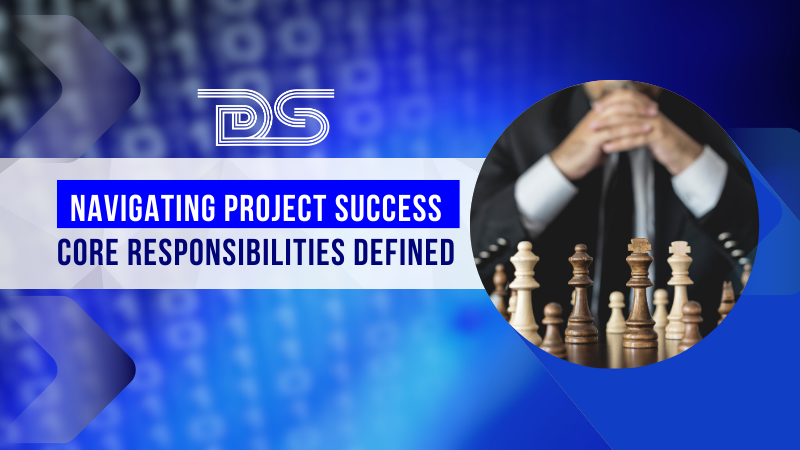
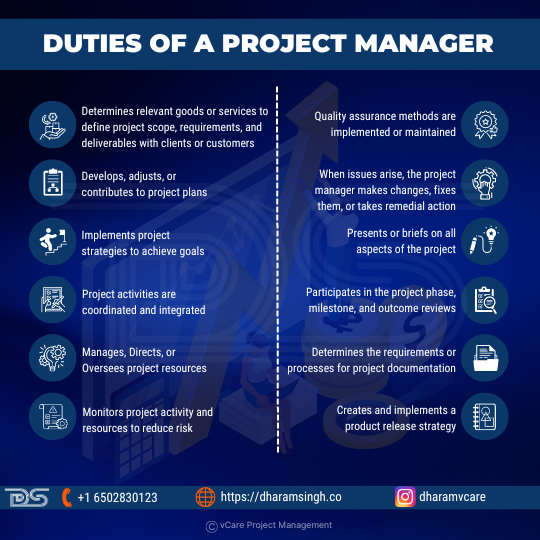

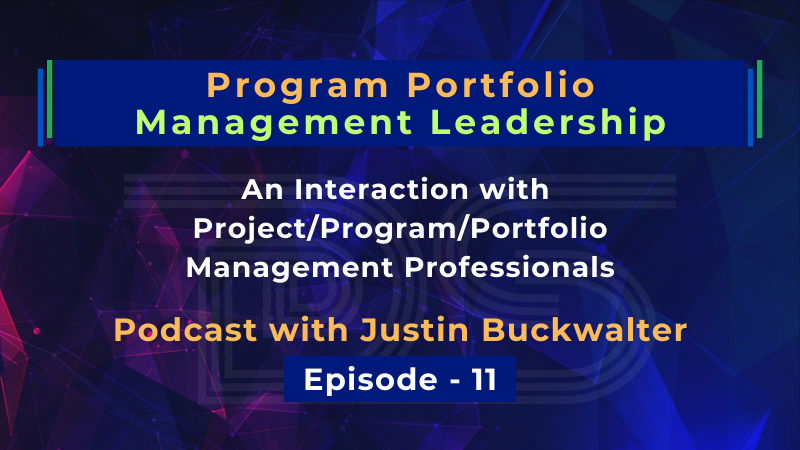

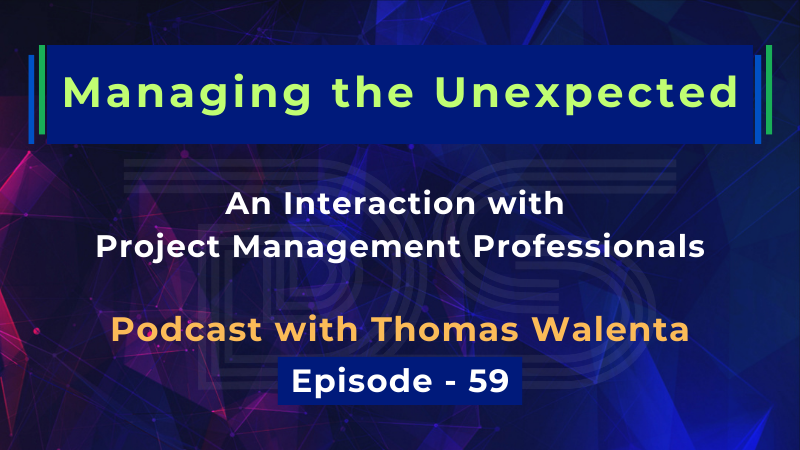

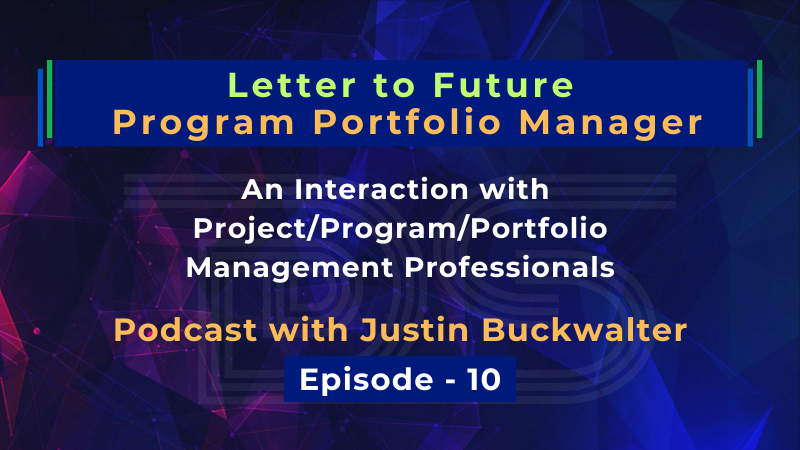








Recent Comments